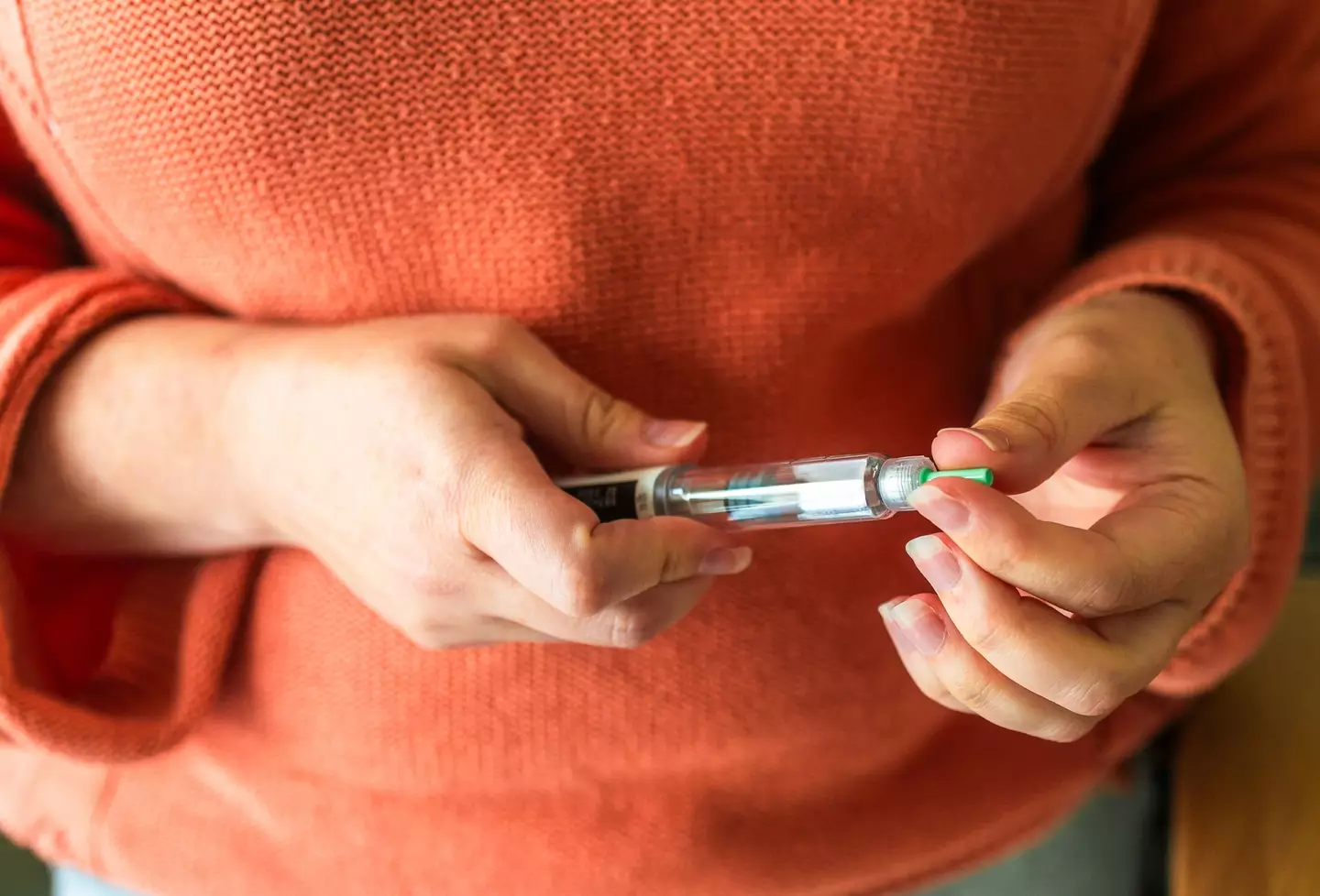
Health experts have issued a warning about the potential side effects of weight loss injections, as an investigation into their safety seeks to determine the cause of death in 10 cases.
The UK Medicines and Healthcare products Regulatory Agency (MHRA) is investigating the safety of weight loss injections after hundreds of patients developed pancreatitis.
Officials are looking into whether a genetic trait in those affected put them at greater risk when taking drugs like Mounjaro, Wegovy and Ozempic.
The use of drugs to achieve weight loss has become a major talking point in recent times.
Advert
Some celebrities and influencers have endorsed GLP-1 injections for weight loss, despite their intended purpose being to help those with Type-2 diabetes manage their blood sugar levels.
Health experts at the MHRA have indicated a potential link between GLP-1 drugs and pancreatic inflammation.
Although various side effects have been reported, there are now suggestions that these medications may have contributed to some deaths.
However, there is currently no definitive evidence directly connecting the drugs to the fatalities.

The MHRA said it has received more than 560 reports of people developing an inflamed pancreas after taking GLP-1 injections. The UK medicines regulator is now asking users who are admitted to hospital for pancreatitis treatment to report the side effect to authorities using the Yellow Card scheme. The disease usually causes severe pain in the stomach that can spread to the back without going away. You should seek medical help immediately if you experience this.
If a patient takes part by sending a Yellow Card report, the MHRA will contact them to ask if they would be willing to take part in the new Biobank study in collaboration with Genomics England, MailOnline reports.
Patients would need to submit a saliva sample to investigate if people are at greater risk of developing acute pancreatitis when taking GLP-1 injections as a result of their genetics. Doctors could then use genetic screening before prescribing these drugs.
“Evidence shows that almost a third of side effects to medicines could be prevented with the introduction of genetic testing,” Dr Alison Cave, MHRA’s chief safety officer told the publication.
Side effects from these drugs are predicted to cost the NHS more than £2.2 billion a year just for hospital stays.
The MHRA has received reports of 181 instances of both acute and chronic pancreatitis linked to an ingredient in one well-known jab.
There have also been 113 cased of acute and chronic pancreatitis linked to an active ingredient found in two other known brands of GLP-1 injections.
“Information from the Yellow Card Biobank will help us to better predict those most at risk of adverse reactions—enabling patients across the UK to receive the safest medicine for them, based on their genetic makeup.

“To help us help you, we’re asking anyone who has been hospitalised with acute pancreatitis while taking a GLP-1 medicine to report this to us via our Yellow Card scheme.”
Other side effects linked to these jabs include nausea, constipation and diarrhoea.
A Novo Nordisk spokesperson said to LADbible: "Patient safety is of the utmost importance to Novo Nordisk. Like all medications, side effects can occur and vary from patient to patient. The known risks and benefits of GLP1 medicines are described in the Summary of Product Characteristics.
"We recommend that patients take these medications only for their approved indications and under the strict supervision of a healthcare professional, who can also advise on potential side effects.
"We continuously collect safety data on our marketed GLP-1 medicines and work closely with the authorities to ensure patient safety. The benefit-risk profile of our GLP-1 medicines remains positive, and we welcome any new research that will improve our understanding of treatments for people living with chronic diseases."
A Lilly spokesperson said in a statement to LADbible: "Patient safety is Lilly’s top priority. We take reports regarding patient safety seriously and actively monitor, evaluate, and report safety information for all our medicines. Adverse events should be reported under the MHRA’s Yellow Card scheme, but may be caused by other factors, including pre-existing conditions.
"The Mounjaro (tirzepatide) Patient Information Leaflet warns that inflamed pancreas (acute pancreatitis) is an uncommon side effect (which may affect up to 1 in 100 people). It also advises patients to talk to their doctor or other healthcare professional before using Mounjaro if they have ever had pancreatitis.
"We encourage patients to consult their doctor or other healthcare professional regarding any side effects they may be experiencing and to ensure that they are getting genuine Lilly medicine."
